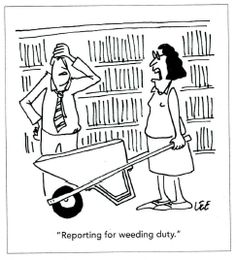 Mentoring has long been a business practice, but it didn’t have much of a role in education until states began allowing people to become certified through alternate routes rather than taking traditional education course in college. These new hires had limited knowledge of pedagogy and educational practices. To get them up to speed quickly, many states instituted mentorships whereby an experienced teacher would guide these newbies through the routines, paperwork, and assorted requirements.
Mentoring has long been a business practice, but it didn’t have much of a role in education until states began allowing people to become certified through alternate routes rather than taking traditional education course in college. These new hires had limited knowledge of pedagogy and educational practices. To get them up to speed quickly, many states instituted mentorships whereby an experienced teacher would guide these newbies through the routines, paperwork, and assorted requirements.
While it’s nice for a school librarian to have a teacher mentor, it does not solve most of the challenges facing someone who is new or relatively new on the job. A teacher can show you the ropes as they apply to the building or district, but not the ones directly related to being librarian. Teachers don’t deal with budgets, purchase orders, people walking in and out of their rooms, a vague or non-existent curriculum, or administrators who don’t know what you are supposed to do other than teach.
In addition, as a librarian you deal with teacher demands, tech responsibilities, and the tech department for a host of issues ranging from updating your automation system and inputting new students and teachers into that system to loading any new databases. Where can you get help? Not from a teacher. You need a school librarian as your mentor.
You have a few options as to how to acquire a mentor. It might be simplest to find another librarian in your district and ask him or her to be your mentor. They are familiar with how the district operates, probably order from the same vendor that you will, and know the people and practices of your districts’ tech department.
Another way to acquire a mentor is to go to your state library association’s website and see if they have a mentor program. Many do and will find one for you, preferably located close to you geographically. My own state of New Jersey has a detailed mentorship program with explanations of the responsibilities of mentors and mentees, the reporting process, and more.
If that avenue is not available, go to you association’s online discussion board (also called listserv). Monitor it for a while to see who is most active and which contributors seem to be the most respected and well-versed in the latest practices in school librarianship. Email one of these librarians and ask him or her to be your mentor.
Those of you who are quite experienced and who are regarded as leaders in your state need to step up and become mentors. If you want school library programs to flourish, you are responsible to help all school librarians to be successful and to grow into being leaders. One of my favorite quotes is by Tom Peters who said, “Leaders don’t create followers, they create more leaders.
Now that you accept your responsibility to become a mentor, you need to find mentees. If your state association doesn’t have a mentorship program, propose one. Use a national forum such as LM_NET or AASL_Forum to find out which states have a program and are willing to share it with you. No need to re-create the wheel.
In the meantime, check to see if your district has any new hires. Positions that once were eliminated are slowly (OK, very slowly) being restored in places. More often than in the recent past, when a librarian leaves or retires the position is not being eliminated, so districts are getting more new librarians. Reach out to these newbies and offer you services.
You can also go on you state association’s discussion board and suggest a core of volunteer mentors for new librarians, saying you would want to be one to help those starting out be successful. The simple act of putting yourself out there should bring both requests from those who recognize what a gift this is and volunteers who will join you in becoming mentors.
Both mentors and mentees have responsibilities in this relationship and it’s best if these are discussed clearly from the beginning. The mentee has the obligation of honoring the mentors’ time and using the communication channel the mentor prefers whether it’s phone, email, skype, or whatever seems best. Sometimes the mentor can come to the mentee’s school. Also determine the frequency of communications. It can be on an as-needed basis or there can be a regular schedule.
Additionally the mentee must be clear as to his/her needs. What specifically does the mentee want to know or learn? I have had mentees email me a copy of an evaluation they received, explained what happened, and asked for the best way to respond to it I have been asked to help craft a memo to a principal regarding a problem situation and do it in a way the librarian didn’t sound as though she was whining or complaining.
It is also a good idea for the mentee to keep track of the number and content of the communications. This serves as documentation of the mentees’ growth. If kept general enough, the mentee might be able to use it to show the principal what he/she learned.
The role of the mentor is more than simply being a coach. Yes, the mentor cheers on the mentee on those down days when all seems to be going wrong and points to places where the mentee has shown growth, but in addition they need to be good listeners and not rush in with answers and advice. They ask guiding questions, much the way we do with students. It’s important that the mentee learn to think through problems and situations on his/her own.
The mentor is also the mentee’s link to resources. This included reminding them of national association websites, informing them of tech resources and apps as well as connecting and introducing them to other leaders. Slowly the mentor guides the mentee not only to be confident and successful on the job, but more importantly, the mentor helps the mentee on the path to leadership.
 Do you have a mentor or have you had one? What did you learn? Have you ever been a mentor? What did you learn and gain from it?
Do you have a mentor or have you had one? What did you learn? Have you ever been a mentor? What did you learn and gain from it?
BONUS!! Download your free Mentor-Mentee contract here!

















